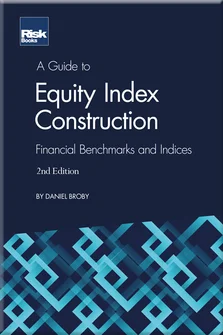Which benchmark?
Which benchmark?
Preface
Acknowledgements
Introduction
Which benchmark?
Modern portfolio theory and the benchmark index
Sampling and selection
Construction method
Making the index investable
Collection and processing of data
Servicing and maintenance
How to handle industries
How to handle countries and currencies
Factor indices and smart beta
Innovative indices
The commercial indices
Indexation and exchange-traded funds
Bespoke “custom-made” indices
Tying it all together
Appendix: The GICS methodology
Bibliography
Disclaimer
INTRODUCTION
“Choosing the most appropriate benchmark benefits both the investor and the investment manager. The benchmark should be representative of the manager’s investment universe, or it should at least have comparable investment risk exposures. When there is a match, the investor receives the desired style exposure and the manager can demonstrate skill.”
—Robert Waid, former Managing Director, Head of Investment Market Services at Wilshire Associates
This chapter addresses the question of which benchmark a fund manager or plan sponsor should choose. Traditionally, the primary criterion for benchmark selection centred around its ability to showcase the skill of an active manager. However, as indices evolved and started incorporating risk and other attributes, the presence of skill among active managers became less prevalent. Simultaneously, the emergence of index-based investment products and derivatives provided plan sponsors and investors with cost-effective access to market proxies. These two factors brought about a broader range of selection criteria for benchmarks, which will be discussed in this chapter.
For an investor to be able to answer the question of what an
Copyright Infopro Digital Limited. All rights reserved.
As outlined in our terms and conditions, https://www.infopro-digital.com/terms-and-conditions/subscriptions/ (point 2.4), printing is limited to a single copy.
If you would like to purchase additional rights please email info@risk.net
Copyright Infopro Digital Limited. All rights reserved.
You may share this content using our article tools. As outlined in our terms and conditions, https://www.infopro-digital.com/terms-and-conditions/subscriptions/ (clause 2.4), an Authorised User may only make one copy of the materials for their own personal use. You must also comply with the restrictions in clause 2.5.
If you would like to purchase additional rights please email info@risk.net











